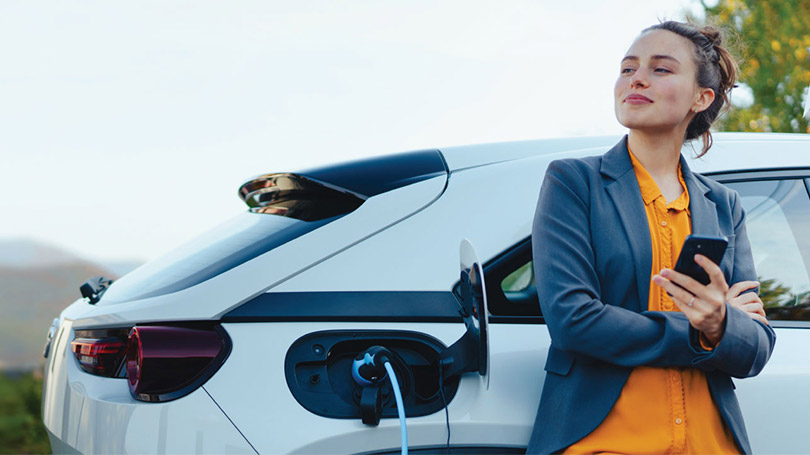ChargeX Consortium Report Aims to Improve the American EV Road Trip Experience
Dec. 14, 2023

While there are many methods of travel to see and experience the country, the road trip remains an American favorite. As more consumers hit the road in electric vehicles (EVs), the public charging experience has come under a national spotlight. When EV drivers plug into a charger at public stations, they expect a successful charge the first time, every time. But complex issues like payment failures, broken parts, software errors, incompatible charger ports, and others contribute to EV charging issues that need to be solved.
The National Charging Experience Consortium (ChargeX Consortium) is working hard to solve those problems. Funded by the Joint Office of Energy and Transportation (Joint Office), the ChargeX Consortium is a collaboration between Argonne National Laboratory, Idaho National Laboratory, National Renewable Energy Laboratory, EV charging industry experts, consumer advocates, and key stakeholders.
The ChargeX Consortium aims to significantly improve the public charging experience in the next two years. Recently, the consortium released its first report towards completing that mission. The Recommendations for Minimum Required Error Codes report offers recommendations for 26 common EV charging error codes to expedite error reporting, diagnostics, and resolution across the EV charging industry.
By recommending common, shared codes, the ChargeX Consortium aims to reduce confusion between charger manufacturers, EV manufacturers, and charging station operators currently using different messages to report similar errors. Along with the minimum required error codes report, the consortium also published an implementation guide to help industry practitioners adopt the minimum required error codes uniformly and quickly.
"The landscape of the American road trip is changing,” said Gabe Klein, executive director of the Joint Office of Energy and Transportation. “To make an electrified road trip convenient and reliable, companies in the EV charging ecosystem must be on the same page about how they communicate, especially when issues arise.”
The new report is one of the latest contributions in the national effort, led by the Joint Office, to advance the buildout of a national charging network and ensure that the public charging experience is convenient, affordable reliable, equitable and safe.
The Joint Office is also paving the way for a better charging experience through the federally funded Ride and Drive Electric Funding Opportunity, a research and development investment that provides $51 million to support the buildout of reliable chargers. Additionally, the Joint Office is working with the Department of Energy, the Department of Transportation, and the White House to provide up to $100 million through the EV Charger Reliability and Accessibility Accelerator Program, which repairs and replaces non-operational EV charging infrastructure.
The Joint Office also supports the National Electric Vehicle Infrastructure (NEVI) Formula Program minimum standards and requirements to ensure a consistent charging experience for every EV anywhere it is charged – with a requirement for stations to remain operational 97% of the time. These standards also include Federal Highway Administration’s requirements for interoperability. The Joint Office supports the Linux Foundation Energy’s efforts to improve interoperability through open-source software for EV charging and on-demand testing to ensure interoperability and reliability.
In early 2024, the Joint Office will release EV-ChART—a centralized hub for collecting EV charging infrastructure data to ensure optimal performance, as well as for providing data to determine when improvements are necessary. Further, the Joint Office’s free technical assistance ensures that stakeholders in the charging space are up to speed on the latest standards and reliability practices to support the successful deployment of EV charging infrastructure.
Each of these efforts are on track to transform the American EV road trip experience by ensuring that all Americans have access to working public EV chargers no matter where they live, commute, or travel.
